2 min read
Gospel-Centered from the Start
“Let us hold unswervingly to the hope we profess, for He Who promised is faithful…Jesus Christ is the same yesterday, today, and forever.” (Hebrews...
7 min read
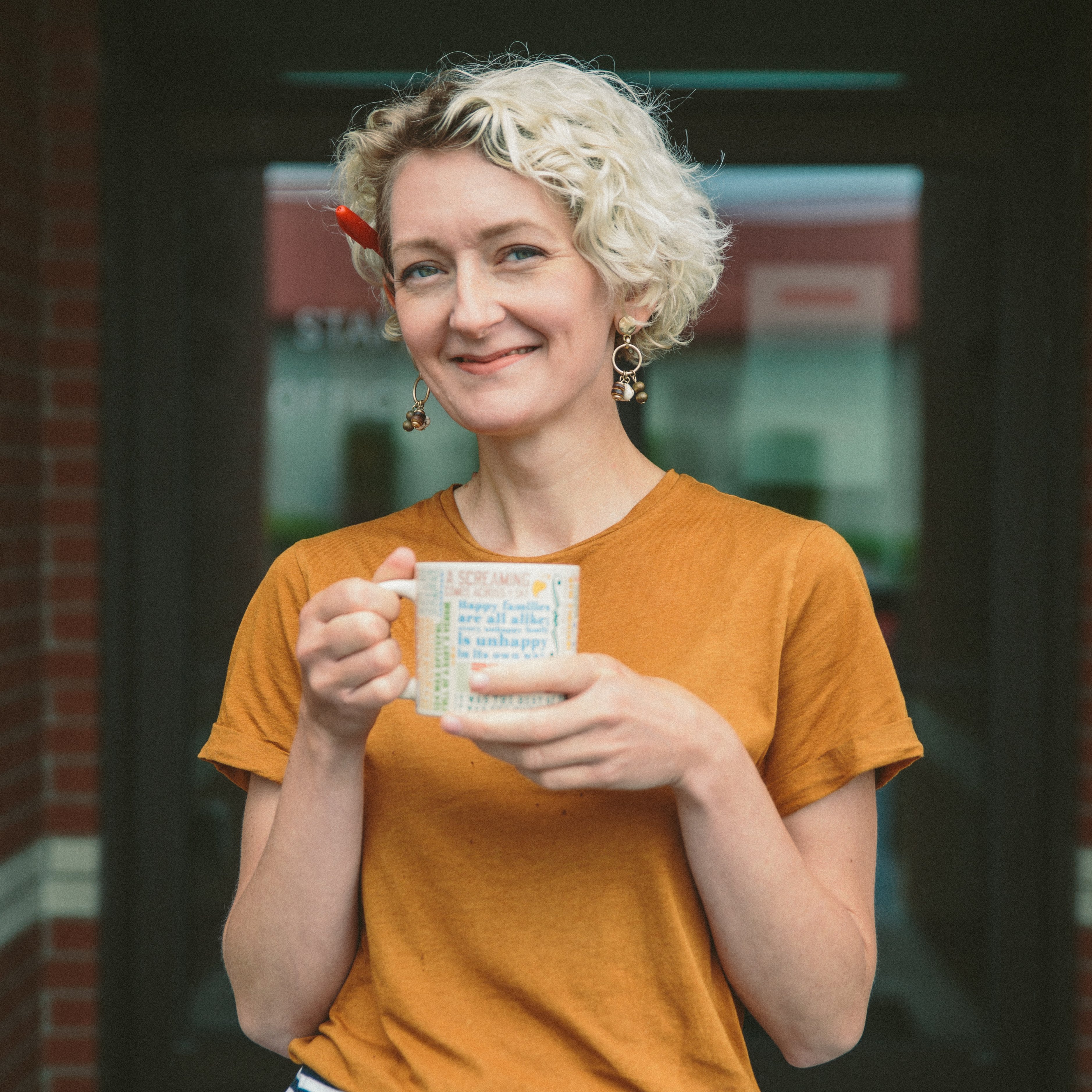 Genevieve Gromlich, former Content and Communications Manager
:
April 26, 2023
Genevieve Gromlich, former Content and Communications Manager
:
April 26, 2023
Union Gospel Mission’s LIFE Recovery program is more than a treatment program; it’s an in-depth approach to whole-person healing. It acknowledges that every individual—regardless of their past, their pain, their fears or failures—is made in the image of God and has inherent dignity and value. It acknowledges that no one was created to live in addiction and no one was put on this earth to be a victim. And it recognizes that beneath every hurtful decision is a wound or false belief that can be healed or brought to light. People hurt people and people hurt themselves. But there is always hope. Over the course of 70-plus years serving individuals caught in cycles of suffering, UGM has established three key resources that help people find the change they need: a safe place to stay, tools to form a new plan, and time to heal and rebuild.
“The harder I tried to stop drinking, to be free from alcoholism, the harder it got.”
“The harder I tried to stop drinking, to be free from alcoholism, the harder it got.” Throughout his forties and fifties, Joel had sunk deeper and deeper into alcoholism. His relationships were suffering for it, most of all his marriage. When he was home, he was either drinking or blacked-out drunk on the bed or couch. “My wife was very much discouraged with my failure to make change in my life. I had begun to cry out to God, but I was still holding onto the pride; I wanted people to know that I did it on my own. I wanted people to think that I was strong.”
But change wasn’t happening, no matter how he prayed to have the strength to quit. “I finally said okay, I’ll do something. I went to stay with my sister for a month to give my wife a break from me.” At his sister’s, Joel watched an impactful YouTube video. “This guy sounded like he was talking to me. He was a Christian man. He had tried to stop drinking, but he finally came to realize that he wasn’t getting anywhere because he wasn’t getting help. He said, ‘Strong people are the ones who admit the problem and get the help they need.’ At that point, I said to myself, ‘This is serious stuff now, and you’ve got to quit playing around.’ So I had to start somewhere.” Joel had been to outpatient treatment programs before. He says, “That was not enough. I finally realized God’s help is community and other people. You have to admit that you are not strong, and admit that you need someone else’s help. So, that’s what brought me to UGM. My life was a mess, my marriage, my family, my children were very much upset with me.”
Joel went to the UGM Men’s Shelter and entered First Steps, a fully residential evaluation phase which includes case management and classwork. His goal was to enter UGM LIFE Recovery.
“Spring 2021, when I got here, I did not feel unsafe, even though it is a homeless shelter.” Joel noted that the Mission’s structure provided a sense of security. “You get the impression very quickly that things are very organized. And there’s the fact that the chores you do, they’re required and they’re serious. It is a high-barrier shelter, it has standards, and you are required to abide by them. That lends a lot to that feeling of safety and just a sense of organization. You are in a place that is doing good, they want you to do good, and they care about you.” 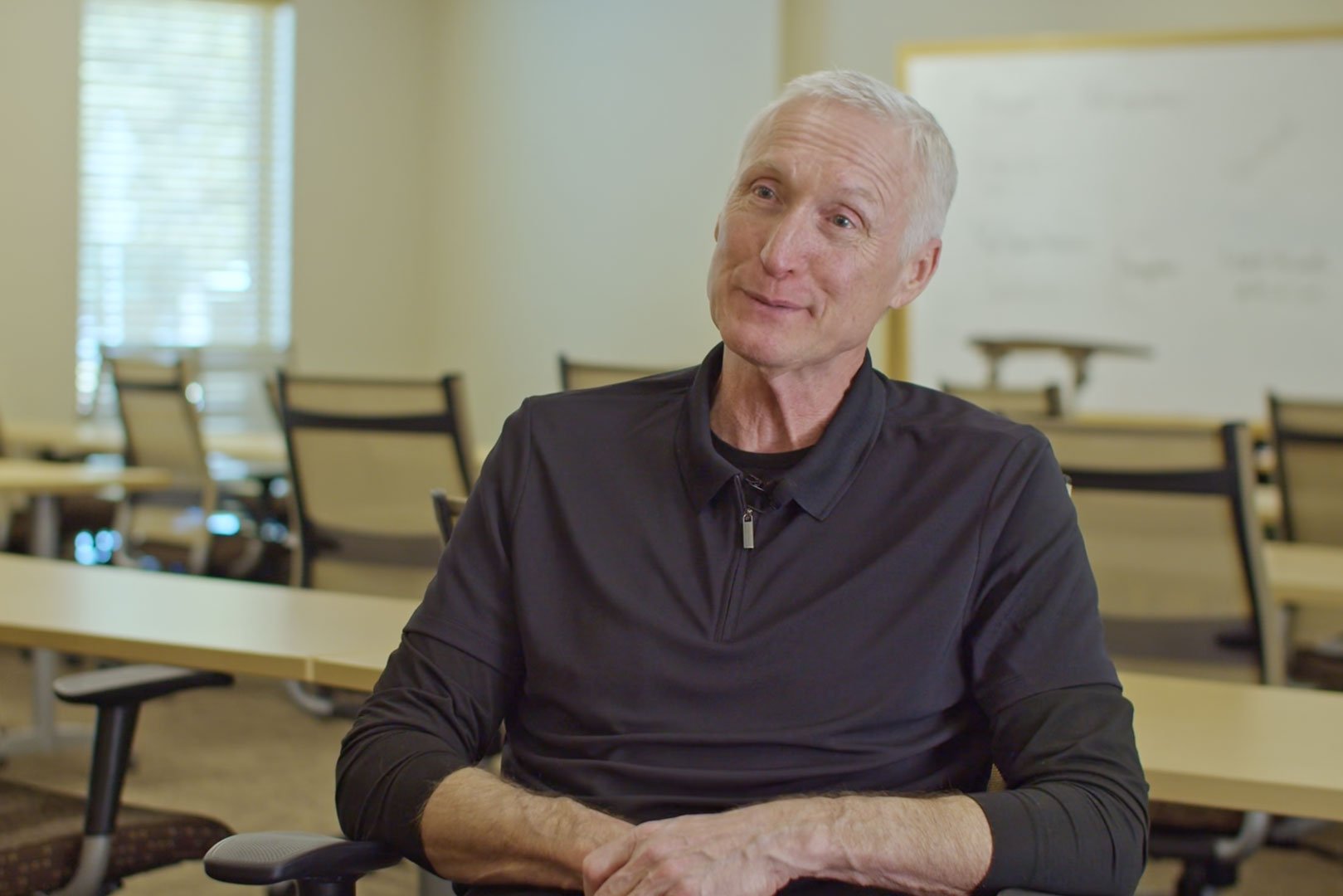
Although, unlike many of our guests, Joel’s issue wasn’t the lack of a home, and he wasn’t escaping abuse, UGM’s clean-and-sober requirement made the Men’s Shelter safe in a way that his home wasn’t; he was safe from his addiction. In addition to three meals a day and clean living arrangements, he had real accountability for the first time in his adult life. Joel knew that if he snuck a drink, he’d be asked to leave or do an accountability meeting, and after three “strikes”, he’d be out of program for good.
Change doesn’t happen by accident, and most worthy goals won’t be achieved without a solid plan. Whatever a person’s goal is—whether it’s obtaining lost ID, finding good employment with a felony record, or pursuing long-term sobriety—UGM provides the tools necessary to form a realistic plan.
Upon completion of First Steps, those who are ready are invited to join LIFE Recovery—an 18 to 24-month commitment. LIFE Recovery consists of four residential phases and a fifth phase in which residents secure employment and move into permanent housing. Phases 1 through 4 include intensive therapies and classwork that are aimed at uncovering the underlying causes of addictions and other destructive patterns.
“Getting free from alcohol would just take sometime; my bigger struggle was what I had struggledwith most of my life: acceptance.”
Shortly after being welcomed into the program, Joel started to see that his problem was not alcohol. “It was a struggle with my heart and things I did not understand in my life. I was looking for contentment in things that God alone is the source of. Getting free from alcohol would just take some time; my bigger struggle was what I had struggled with most of my life: acceptance. I was a quintessential loaner.” One of Joel’s deepest wounds from childhood was from being ignored by people he wanted as friends. As a teen, he’d given up trying, and assumed the title of “loner” as a way to somehow hide from the pain.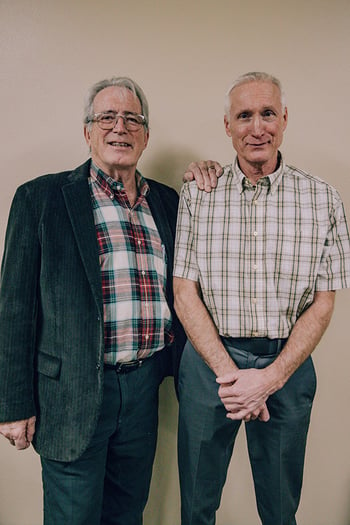 In program, classes like Boundaries (book by Cloud and Townsend), Genesis Process (series by Michael Dye and Patricia Fancher), Understanding Addiction (part of the Genesis Process), and Search for Significance by Robert McGee, helped bring clarity to Joel’s false beliefs. “At one point, I began to realize all the layers that had been peeling off. Then you go through a self-evaluation, and another class, and then there are more layers to peel off, then more. I did not know how many layers there were. I think the layers will continue to come off for the rest of my life.”
In program, classes like Boundaries (book by Cloud and Townsend), Genesis Process (series by Michael Dye and Patricia Fancher), Understanding Addiction (part of the Genesis Process), and Search for Significance by Robert McGee, helped bring clarity to Joel’s false beliefs. “At one point, I began to realize all the layers that had been peeling off. Then you go through a self-evaluation, and another class, and then there are more layers to peel off, then more. I did not know how many layers there were. I think the layers will continue to come off for the rest of my life.”
He says there wasn’t any one class that was more effective than the others, but Boundaries and Creation were personal favorites. “Boundaries enabled me to realize that I need humility to respect the boundaries of others, and I need courage and trust in God to express and enforce my own boundaries. That’s just not something I had never heard. And Greg Barclay’s (UGM staff) Creation classes opened my eyes to see the God of the Universe in His greatness. He has a video with Louie Giglio where he talks about the size of these different suns, etc. For me to realize that this universe, and all of its magnificence…our moon is a tiny little thing compared to the sun, and our sun is a tiny little thing compared to so many others, and I am this little bitty thing. Yet we as humans are God’s focus and He allows us to experience His glory, the wonder of who He is.
“For me, LIFE Recovery was an opportunity to just reset, to look at my life from the time I was a little kid on, and to realize where my pursuits were. I was trying to find this peace, this joy and contentment through relationships, family... and ultimately drinking because I wasn’t satisfied. I was putting everything but God where God belongs. It’s idolatry. It was me-ism, and there are no two ways about it. I wasn’t looking to God to satisfy me.”
Of all the methods and tools used in program, Joel says that our self-evaluation process may have been the most impactful. “To be in that environment with other people who have the same problems or variations of it, and to hear them say it, to have them sit on that self-eval stool and tell you the mistakes they made that you thought you were the only one that made them—that is a huge thing. You are not alone. You are not the only one thinking this way.”
Change doesn’t happen overnight, it doesn’t even happen over 2 years; it takes trying new things, daring to fail and try again, practice, accountability, and a great deal of trust within close, loving relationships. Throughout all program phases, and even when program is over, time is a key component to lasting change.
“Time was a huge thing for me, time to reflectand time for my head to clear.”
“Time was a huge thing for me, time to reflect and time for my head to clear. Substance abuse, whether alcohol or drugs, fogs up your head, and you need time for your mind to clear and your emotions to settle down—to have some time where life is pushed aside for right now. I spent the time in prayer, saying, ‘God, I am here, and you are helping me. I want this help. I don’t want to be here passing time, I want to be here learning and growing and making real change in my heart.’ For me, it was that combination of the time and the ability to reflect and realize how valuable I am to God. He is the source of my contentment, my joy, my peace. People are untrustworthy, but if I can trust that God has my best interest at heart and I surrender to Him, then I can trust other people because He’s got my back. That’s what this program helped me do.
“This program helped me just to have time free from alcohol, too. Within two to three months of sobriety, I was not thinking about it anymore. I am now 24 months sober. Not one sip of alcohol. I don’t think about it. I am not tempted by it. It was a very unfaithful friend, or lover, that was lying and cheating on me the whole time, if you will. I don’t miss it and I am very thankful for that. For me, sobriety is not about alcohol; it’s emotional sobriety, it never was alcohol. I am realizing that my emotional sobriety is centered on my walk with Christ, day in and day out. Am I going to allow anything in this world to have a priority over the fact that I am bought with a price? I am not my own, I belong to God and He paid a price I can’t comprehend—to forgive me, to give me His righteousness.”
Apart from a relationship with the Lord, the greatest gift Joel received through program was a renewed relationship with his wife, but it took time. “I did not have communication with my wife and most of my children most of the time I was here. I struggled with thinking they didn’t care, that I was abandoned, that I’d been betrayed. But I came to the point of realizing that all those feelings were the same betrayal that I had done to them. That was a big thing for me.”
In phases four and five, residents work to create an Aftercare plan which includes learning relapse prevention strategies, selecting a long-term mentor, and cultivating friendships with people who can hold them accountable long after program. And in phase 5, they move out. Joel moved back in with his wife. 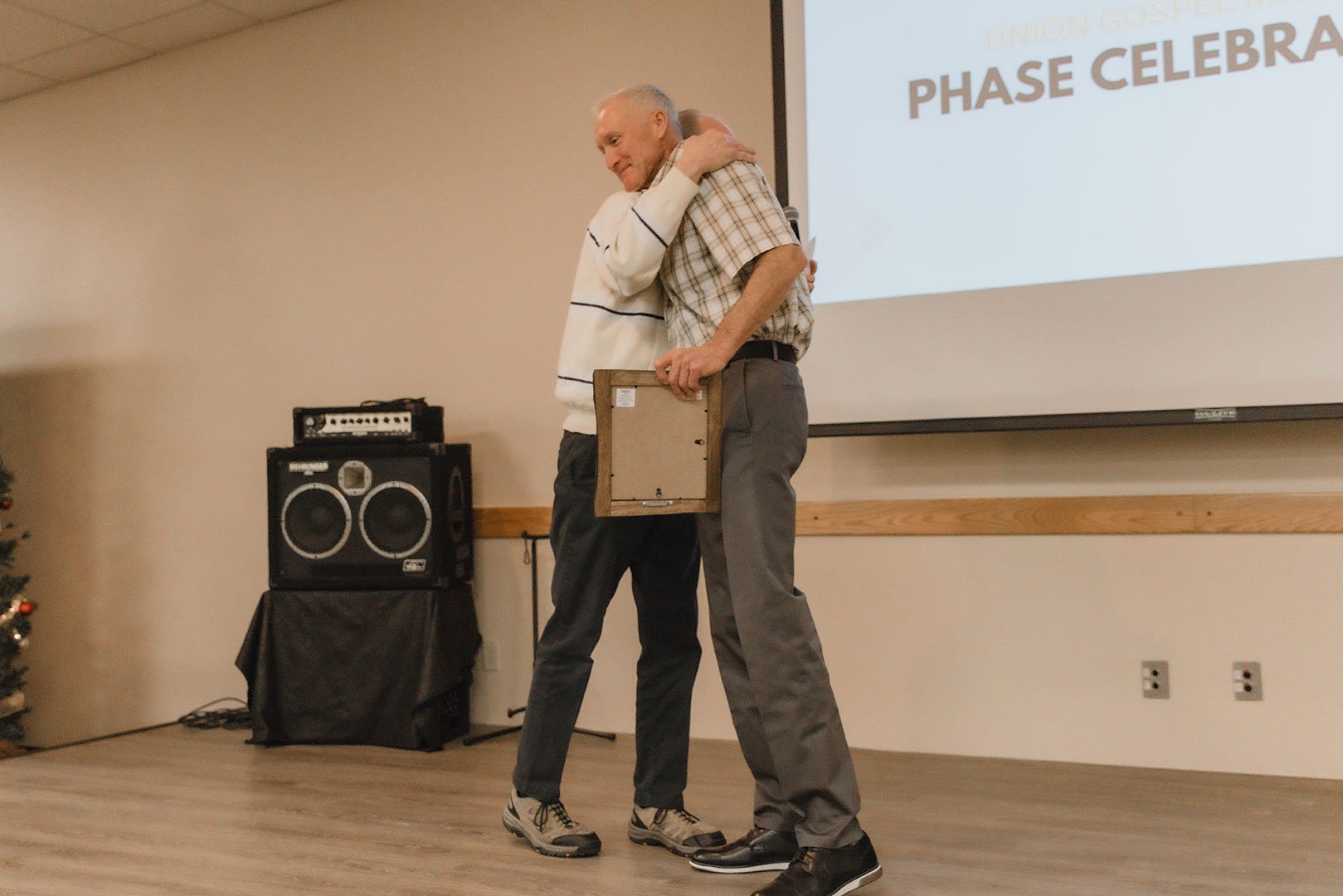
“We are doing very well and she’s thrilled to have me home. I’m very thankful for that. But there’s still a lot of work to be done,” he says. “That’s the journey I am on, and I am excited to see what that looks like. We are getting some marital counseling together, and I’m going to some Celebrate Recovery meetings.”
He completed UGM LIFE Recovery in December 2022 and will be honored in the 2023 LIFE Recovery Celebration on June 27.
“I am excited to live my life in complete surrender toGod and watch Him bring me the contentment Ihave always looked for—long term, not for six months, not for a year, but for the rest of my life.”
“I am excited to live my life in complete surrender to God and watch Him bring me the contentment I have always looked for—long term, not for six months, not for a year, but for the rest of my life. It’s fun to be sober, in what sobriety really is: Loving God with all your heart, honoring Him in your life – that’s sobriety.”
We talk about three resources that make lasting life change possible, but the reality is there’s a fourth resource: you. The community that supports UGM makes stories like Joel’s possible.


2 min read
“Let us hold unswervingly to the hope we profess, for He Who promised is faithful…Jesus Christ is the same yesterday, today, and forever.” (Hebrews...

9 min read
To celebrate 75 years of serving the Inland Northwest, we are spending the year remembering our history and the faithfulness that built us and...

2 min read
In 2026, Union Gospel Mission Inland Northwest is approaching our 75th Anniversary! This is a milestone that invites gratitude and reflection, and...
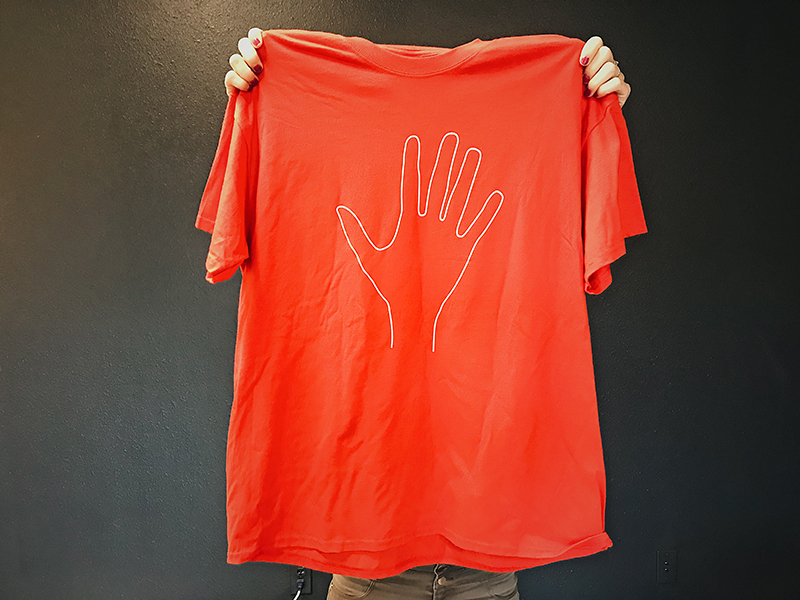
By Mike Doggett, former Aftercare Manager - A little over 21 years ago, I consumed my last drink of alcohol and went on what has proved to be a very...

“As good stewards of the manifold grace of God, each of you should use whatever gift he has received to serve one another.” – I Peter 4:10 Dale Fruin...
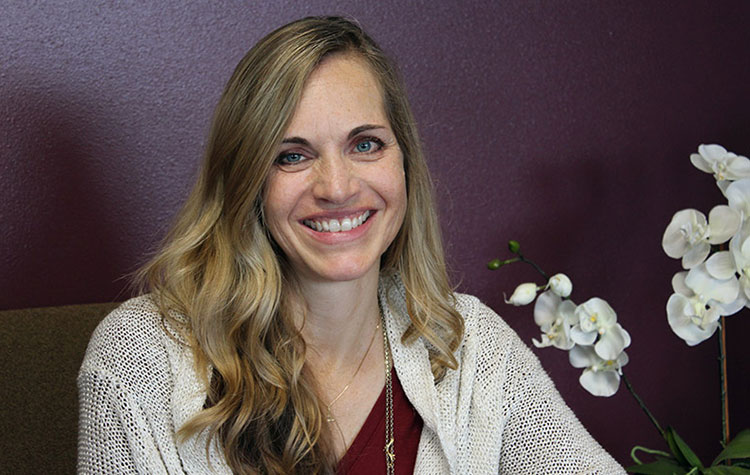
By Kirste Richards, UGM Counselor - Gratitude plays an important role in my ministry as a counselor at the UGM Center for Women and Children in...